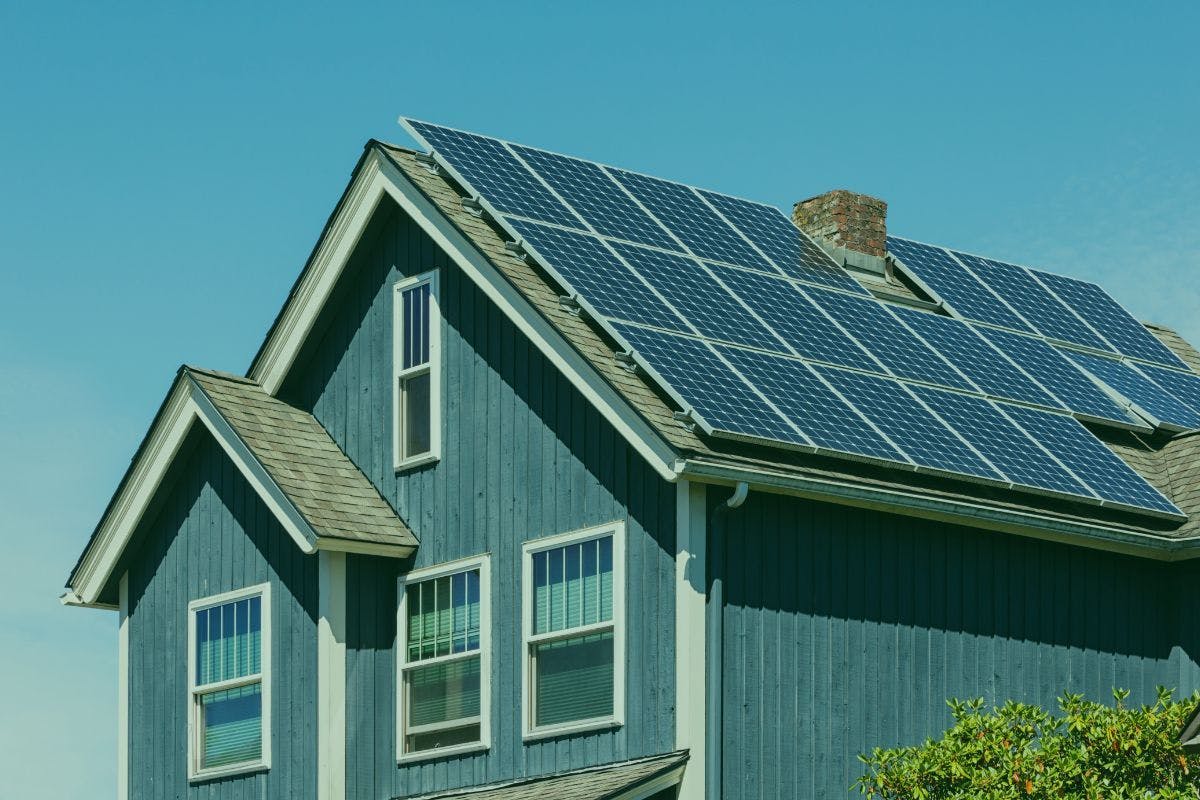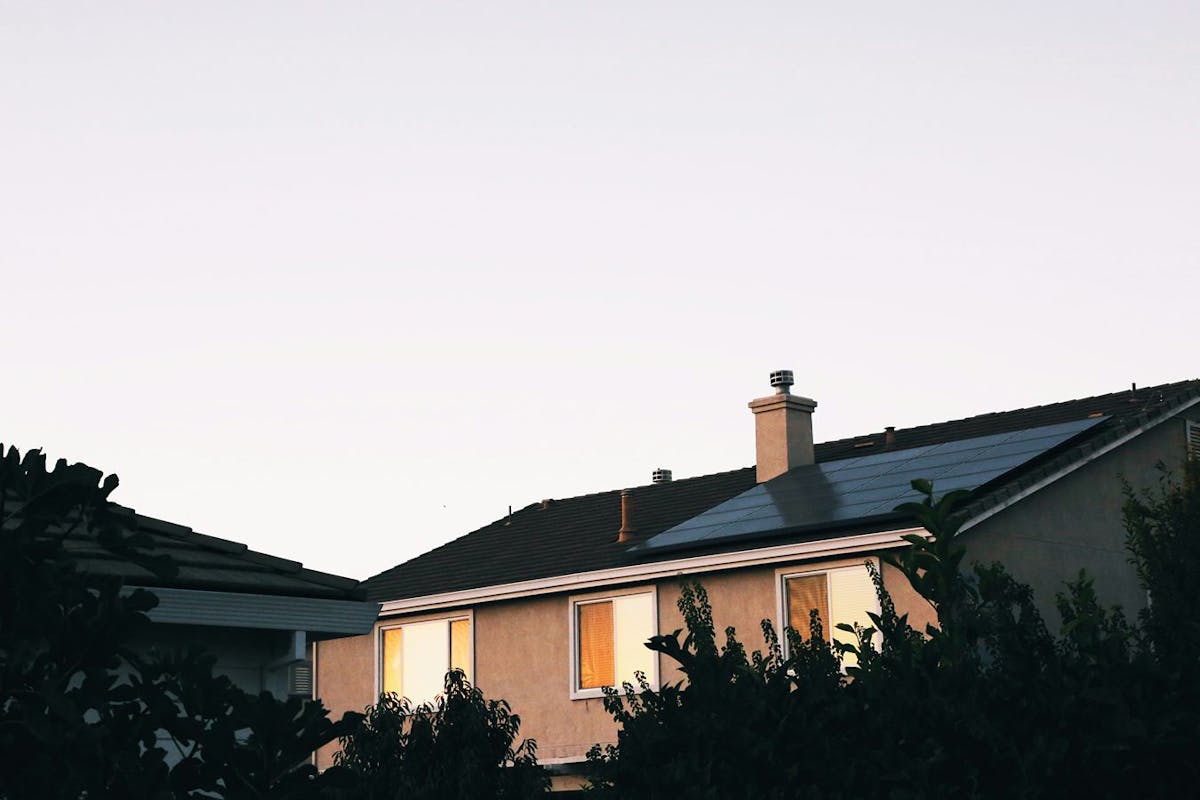Is Solar A Good Investment?
Last edited
Author
Andrew Giermak
Solar and Electrification Writer and Editor
Editor
Ryan Barnett
SVP, Policy & New Market Development

The sun is the cleanest and most infinite power source we have. But, are solar panels a good investment for your home? The reasons to consider home solar panels and solar electricity include saving money, living greener with renewable energy, adding to your property’s value, and having greater energy independence.
More homeowners are choosing to go solar all the time. But what about home solar panels, specifically? Are solar panels a good investment?
See how much you can save by going solar with Palmetto
Reasons to Go Solar
There are plenty of reasons to go solar. Here are 10 of them.
1. Save on utilities
Offset rising utility costs by producing your own power. Solar panels are increasingly efficient, affordable, and reliable — allowing you to access risk-free solar energy savings and pay off your investment in record time. You’ll also be eligible for tax credits and incentives and, in some cases, can even earn credit from your utility company for the energy you produce.
2. Advance energy independence
When you get solar panels, you get greater distance from rising utility electricity rates and (with a backup battery) grid unreliability. Greater energy independence from your utility means you get to use energy on your terms.
3. Increase your home value
Your home is a big investment, and one you want to maintain and increase the value of. But before you start renovating bathrooms, updating kitchens, or re-siding exterior walls, consider this: Solar-powered homes have been shown to earn more, sell faster, and attract more attention on the national real estate market.
As green homes become increasingly popular with buyers of all ages, your potential return on investment will continue to grow.
4. Avoid peak rates
The peak time for energy usage is 11 a.m. to 4 p.m. daily. Utility companies, aware of this fact, often adopt a supply and demand-based pricing structure in which electricity rates increase during peak usage hours.
Fortunately, this is the sunniest part of the day, which means your solar array can capture and produce sufficient, if not excess, power for your needs. So, are solar panels worth the investment? You get to avoid peak rates and, in many areas, can even earn credit on the excess power you produce. In other words, yes!
5. Maintain power during outages
The home plays an increasingly dynamic role in the modern household. Maybe it’s your office, your design studio, your favorite restaurant, your personal entertainment center, or the epicenter of your child’s education.
All of this means that power outages can be very inconvenient. Solar energy storage solutions have made it possible to sidestep the disruptions by allowing you to tap into stored energy whenever the grid goes down.
6. Produce the energy you need
A solar system should be tailored to the energy needs of your household. Perhaps you get married, have kids, begin working from home, or expand the house. When it becomes clear you need more energy, it’s possible to add panels or battery storage to ensure your solar system is always in step with the energy needs of your household.
7. Reduce your risk of electrical fire
Solar energy systems are less vulnerable to electrical surges and can significantly reduce your chance of an electrical fire. According to a 2015 study, “Home electrical fires account for an estimated 51,000 fires each year, nearly 500 deaths, more than 1,400 injuries, and $1.3 billion in property damage.” Electrical distribution systems are cited as the third leading cause of these fires.
By contrast, solar panels have rarely been implicated in electrical fires, and those that have can typically be traced to faulty wiring or improper installation. When asking yourself, “Is home solar a good investment?” be sure to take your safety into consideration.
8. Share your values
When you add solar panels to your home, you generate a ripple effect that spreads through your neighborhood, your community, your state, and beyond. Solar panels are a visual cue you’re committed to sustainable living and you want to leave the world a better place than you found it.
Solar panels also remind those around you it’s both possible and accessible to break our reliance on fossil fuels and instead choose clean energy solutions with lasting benefits for your budget and the environment.
See how much you can save by going solar with Palmetto
9. Stay cool
A study conducted by the University of California found the installation of solar panels on your roof can lower its temperature by as much as five degrees Fahrenheit, thus reducing the burden on your AC.
Even better news: The inverse is true as well. In colder months, the panels function to hold heat in. This means solar panels improve year-round efficiency and savings.
10. Support your local economy
There’s no better way to make a positive impact on your new neighbors than by putting money back into the local economy. The solar energy industry employed more than 250,000 workers in 2023, marking a 167% increase in the last decade alone. This growth plays a large role in the economic health of communities across the country. As a result, your investment in solar savings is an investment in the financial wellbeing of your community.
Why Solar Power Is a Good Investment
While there are other ways of getting solar power to your home, adding your own solar panels to your own roof is an investment that not only pays off immediately by reducing your electricity bill, it also pays off in the future as the value of the system gets added to your home’s overall value.
With many different financing options available, many Palmetto customers pay off their initial investment in less than 10 years. After that time, your home has a predictable, sustainable energy option that pays back your initial investment many times over.
If you’re looking to purchase a home, you’re likely comparing neighborhoods, outlining preferences, and taking steps to clarify your budget and long-term goals. It is an exciting chapter in your life and the perfect time to embrace renewable energy.
Buying a Home With Solar Panels vs. Installing Solar Panels Yourself
There’s a huge difference between buying a home that already has solar panels and buying a home and then installing solar panels. Homes already equipped with solar panels have been shown to sell faster and earn more on the national real estate market, but it’s important to assess the health of any existing solar panel system before you buy.
If you’re considering a home with an existing solar array, be sure to ask about warranties, lease payments, maintenance records, the roof age and condition, and the average energy produced. In some cases, it may be preferable to buy a home without solar panels and then have them installed yourself.
If you’re buying a home and thinking about installing solar panels, keep in mind adding solar to your home helps you save money by offsetting your monthly utilities and avoiding rising and fluctuating energy rates, and decreases your carbon footprint.
How to Go Solar
Palmetto offers end-to-end solar energy solutions that save you time and money. Whether you’re just starting to search for a new home, or have already found the perfect spot, we can help you figure out the best way to integrate solar energy solutions and accelerate your return on investment.
If you’d like to learn more, you can start with an estimate from our solar savings calculator. You can also contact us and we’ll help you get started.
See what solar can do for you:
Frequently Asked Questions
How much do home solar panel systems cost?
The cost of a residential solar power system varies a great deal depending on many factors, some of which are specific to your property. Shading on your property, the layout and dimensions of your roof, solar panel system size, your energy usage, your budget, and decisions such as adding battery storage, are important factors.
Do solar panels require maintenance?
Solar panels and systems require very little maintenance. It’s best to understand what warranties your solar panel system has and have professionals take care of recommended maintenance.
How long do solar panels last?
Solar panels generally last for 25 or more years. Solar warranties generally are 25-year warranties.


